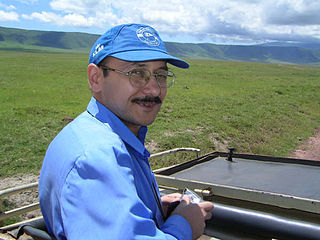 W
WDmitri Mikhailovich Bondarenko is a Russian anthropologist, historian, and Africanist. He has conducted field research in a number of African countries and among Black people in Russia and the United States. He is Principal Research Fellow and Vice-Director for Research with the Institute for African Studies of the Russian Academy of Sciences, Director of the International Center of Anthropology of the National Research University Higher School of Economics, and Full Professor in Ethnology with the Center of Social Anthropology of the Russian State University for the Humanities. He holds the titles of Professor in Ethnology from the Lomonosov Moscow State University, Professor of the Russian Academy of Sciences in Global Problems and International Relations, and Corresponding Member of the Russian Academy of Sciences in History.
 W
WA diaspora is a scattered population whose origin lies in a separate geographic locale. Historically, the word diaspora was used to refer to the mass dispersion of a population from its indigenous territories, specifically the dispersion of Jews. While the term was originally used to describe the forced displacement of certain peoples, "diasporas" is now generally used to describe those who identify with a "homeland", but live outside of it.
 W
WDigital nomads are people who use telecommunications technologies to earn a living and conduct their life in a nomadic manner. Such workers often work remotely from foreign countries, coffee shops, public libraries, co-working spaces, or recreational vehicles. It is often accomplished through the use of devices that have wireless Internet capabilities such as smartphones or mobile hotspots. Successful digital nomads typically have a financial cushion or need to develop high levels of self-reliance and self-discipline.
 W
WAn expatriate is a person residing in a country other than their native country. In common usage, the term often refers to professionals, skilled workers, or artists taking positions outside their home country, either independently or sent abroad by their employers, which can be companies, universities, governments, or non-governmental organisations. However, the term 'expatriate' is also used for retirees and others who have chosen to live outside their native country. Historically, it has also referred to exiles.
 W
WThe immigrant paradox is that recent immigrants often outperform more established immigrants and non-immigrants on a number of health-, education-, and conduct- or crime-related outcomes, despite the numerous barriers they face to successful social integration.
 W
WThe Japanese in Latin America is a 2004 book published by the University of Illinois Press about Japanese Latin Americans. The author is Daniel Masterson, while Sayaka Funada-Classen gave research assistance related to the Japanese language. The book discusses all of the major Japanese populations in Latin America and some other groups of Japanese diaspora who are not as well known. The Japanese populations of Argentina, Bolivia, Brazil, Chile, Colombia, Paraguay, Peru and Uruguay in South America, Cuba and the Dominican Republic in the Caribbean, Central America, and Mexico are all discussed in this book.
 W
WA neo/new diaspora is the displacement, migration, and dispersion of individuals away from their homelands by forces such as globalization, neoliberalism, and imperialism. Such forces create economic, social, political, and cultural difficulties for individuals in their homeland that forces them to displace and migrate.
 W
WNew Worlds, New Lives: Globalization and People of Japanese Descent in the Americas and from Latin America in Japan (ISBN 978-0804744621) is a 2002 academic book edited by Lane Ryo Hirabayashi, James A. Hirabayashi, and Akemi Kikumura-Yano and published by the Stanford University Press. The volume, edited by three Japanese American anthropologists, was produced by the Japanese American National Museum's International Nikkei Research Project. The same project produced the Encyclopedia of Japanese Descendants in the Americas: An Illustrated History of the Nikkei, and the two books are companion volumes.
 W
WNyLon is the concept of New York and London as twin cities — the financial and cultural capitals of the Anglo-American world. There is a community of high-earning professionals who commute between these cities on the busy transatlantic air route. To satisfy the tastes of this common community, businesses such as Time Out and Conran establish branches in both cities. The magazine Nylon explicitly covers this scene with articles about the two cities.
 W
WÓ Rothláin is an Irish surname. The name is a Patronym meaning "descendant of Rothlán." It is suggested that it is a possible variant of Ó Raghalláin, or Ó Roghallaigh. It is the pre-anglicised, Irish form of the names Rowlan, Rowland, Rowlands, Rollan, Rollin, Rolan and Rowley. The name can also be found spelled as Ó Rothlán, Ó Rothlain, O'Rothlain, Rothlán, and Rothlan.
 W
WThe term "perpetual traveler" refers to the idea that by basing different aspects of one's life in different countries and not spending too long in any one place, a person can reduce taxes, avoid civic duties, and increase personal freedom. Books and services relating to the PT idea have been a staple of companies that specialise in marketing offshore financial services, tax avoidance schemes, and personal privacy services.